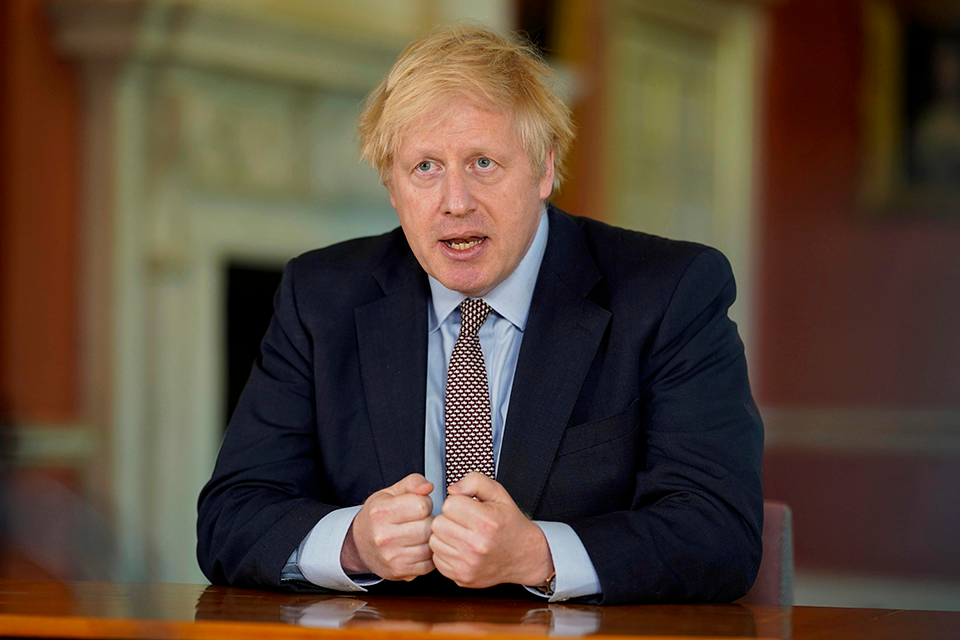Rounding up the Tories’ key pledges in the area of digital and data, including a new cyber force and tax incentives for investing in cloud computing
One of the few topics to break Brexit’s hegemonic grip on election news cycles was Labour’s proposals to build a state-owned fibre network and deliver free broadband connectivity to everyone in the UK.
In as much as there has been any meaningful discussion of technology and data policies, those of the Conservatives and the Liberal Democrats have been rather overshadowed by Labour’s headline-grabbing announcement.
But the manifestos of all three major national parties each contain a selection of proposals for the investment in and use of tech and data, and plans to grow the UK’s digital industry and skills.
Although it is fair to say that, to find them, one must first dig down through several layers of the B word – especially in the case of the Conservatives.
The Tory manifesto features 31 cumulative uses of the words ‘technology’, ‘digital’, ‘data’, and ‘cyber’ – or variations thereon – compared with 61 instances of the word ‘Brexit’. This includes 23 separate verbatim repetitions of the slogan ‘Get Brexit Done’.
The document is also a little lighter on detail than those published by the other parties, coming in at 4,365 and 7,094 words shorter than the Labour and Lib Dem manifestos, respectively.
But within its 64 pages, the Conservative manifesto does contain a few morsels of tech and data policy.
If the party remains in power at the end of this week, here’s five to look out for in the coming years:
Expansion of R&D tax credits
Research and development tax credits allow firms to claim back a cash sum or a corporation tax reduction against money invested in developing new products or services or making improvements to their existing offerings.
We will review the definition of R&D so that important investments in cloud computing and data are also incentivised
Smaller firms can claim back a sum equivalent to 33% of money spent. The figure for larger companies is 10% – which the Tories plan to increase to 13% if they win the election.
The manifesto also reveals that the interpretation of what constitutes R&D may be expanded to cover not just research and development activities, but also the infrastructure that underpins them.
“We will… review the definition of R&D so that important investments in cloud computing and data, which boost productivity and innovation, are also incentivised,” it says.
Annual healthtech summit
The Conservatives pledge that they “will use frontline technology to improve patients’ experience, provide flexible working for clinicians, and help save lives”.
There is little in the way of specifics as to how this will be achieved, but the manifesto does indicate that health screening will be a key target area for tech investments.
“We will overhaul NHS screening and use new technology and mobile screening services to prevent ill health,” it says. “We will focus on helping patients with multiple conditions to have simplified and more joined-up access to the NHS.”
The most tangible commitment in the area of NHS-related technology is that a Tory government would launch “an annual health technology summit”.
Cybercrime force
The manifesto pledges the creation of a “new national cybercrime force” to help deal with online crime and cyberattacks.
It also states that the Conservatives will endeavour to help the wider law-enforcement sector use technology more effectively.
“We will… empower the police to safely use new technologies like biometrics and artificial intelligence, along with the use of DNA, within a strict legal framework,” it says.
Institutes of Technology
The Tories propose a commitment of £2bn to improve facilities across the UK’s “further-education college estate”.
Alongside this investment, the party also plans to boost the teaching quality of STEM subjects by establishing a national network of institutions that work closely with the commercial sector.
The manifesto says: “We’ll also have 20 Institutes of Technology, which connect high-quality teaching in science, technology, engineering and maths to business and industry.”
Fibre broadband for all by 2025
In what has emerged as, perhaps, the biggest battleground for tech policy, the Conservative manifesto has its own arsenal of proposals.
The party has pledged to bring full-fibre to every building in the UK by 2025 – five years earlier than Labour’s deadline of 2030, and eight years ahead of the 2033 timeline set out last year by the Tories themselves, in measures announced by then-chancellor Philip Hammond.
Unlike Labour’s plan to invest in building nationally owned infrastructure, the Conservatives will support the rollout with new legislation and also by paying for connections for buildings that would otherwise be unlikely to be covered by commercial networks.
“We intend to bring full-fibre and gigabit-capable broadband to every home and business across the UK by 2025”, the manifesto says. “We know how difficult it will be, so we have announced a raft of legislative changes to accelerate progress and £5bn of new public funding to connect premises which are not commercially viable.”





https://infohelpforyou.com/불타는-트롯맨-다시보기/
https://madreviewer.tistory.com/entry/EAB5ACEAB880-EB939CEB9DBCEC9DB4EBB88C-EBA19CEAB7B8EC9DB8ED9598ECA780-EC958AEC9D8C-EC98A4EBA598-ED95B4EAB2B0EBB295?category=867465
https://klero.tistory.com/tag/버팀목자금바로가기
Mexican Easy Pharm: Mexican Easy Pharm – mexico drug stores pharmacies
이태원게이바